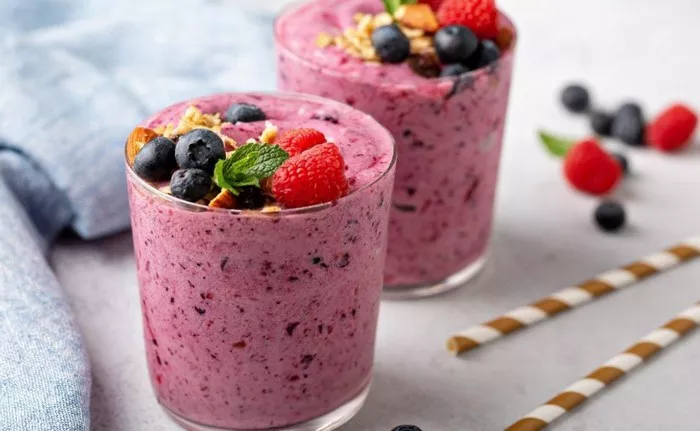When it comes to losing weight, particularly targeting stubborn belly fat, many people search for a quick fix—often in the form of “miracle” foods that promise to burn fat effortlessly. However, the reality is far more complex. This article will explore the myth of “fat-killing” foods, provide practical advice on a balanced diet, emphasize the importance of exercise, and encourage professional guidance to achieve sustainable weight loss.One of the most persistent myths in the world of weight loss is the idea that certain foods can specifically target and “kill” belly fat. This concept is appealing but misleading. The truth is, there is no food that can selectively reduce fat in one area of the body. Weight loss occurs when you burn more calories than you consume, resulting in a calorie deficit. This deficit causes your body to use stored fat for energy, leading to overall fat loss—including belly fat.
The key to effective weight management is not in searching for magic foods but in adopting a balanced and diverse diet. Eating a variety of nutrient-dense foods supports overall health and aids in weight loss by providing essential vitamins, minerals, and fiber, which can enhance metabolism and promote satiety.
SEE ALSO: Why Is Fibre Important in a Healthy Diet?
Promoting a Balanced and Healthy Diet
While no single food can eliminate belly fat, certain vegetables are known for their health benefits, which can support weight loss efforts when included in a balanced diet. Below are some examples of vegetables that are nutrient-rich and beneficial for overall health:
Leafy Greens (Spinach, Kale, Swiss Chard): Leafy greens are low in calories and high in fiber, which can help you feel full and satisfied without overeating. They are also rich in vitamins, minerals, and antioxidants, which support overall health and help combat inflammation, a factor that can contribute to weight gain.
Cruciferous Vegetables (Broccoli, Brussels Sprouts, Cauliflower): These vegetables are packed with fiber and nutrients, and they contain compounds that may support healthy digestion and metabolism. They are also low in calories, making them a great addition to any weight-loss diet.
Benefits of These Vegetables
Fiber Content: Fiber is an essential component of any diet, especially for those looking to lose weight. It helps to promote digestion, prevent constipation, and make you feel full for longer periods, reducing the likelihood of overeating. High-fiber vegetables like leafy greens and cruciferous vegetables are excellent for promoting satiety, which can help control calorie intake.
Vitamin and Mineral Content: These vegetables are not just low in calories; they are also packed with vitamins and minerals that support various bodily functions. For instance, leafy greens are high in vitamins A, C, and K, which are essential for immune function, skin health, and blood clotting, respectively. Cruciferous vegetables are rich in vitamins C and K, as well as folate, which is crucial for cell repair and growth.
Portion Control and Moderation
Even though vegetables are healthy, portion control is important. Consuming large quantities of any food, even vegetables, can lead to an excessive calorie intake, which may hinder weight loss. It is essential to balance your diet with a variety of foods, ensuring that you are getting a wide range of nutrients without overeating.
For example, aim to fill half of your plate with vegetables, a quarter with lean protein, and the remaining quarter with whole grains. This approach ensures that you are getting a balanced meal that is rich in fiber, protein, and healthy fats, all of which are crucial for maintaining a healthy weight.
Importance
Diet alone is not enough to achieve sustainable weight loss. Regular exercise is crucial for burning calories, building muscle, and improving overall health. Combining a healthy diet with a consistent exercise routine is the most effective way to lose weight and keep it off.
In addition to exercise, lifestyle changes play a significant role in weight management. Factors such as stress, sleep, and hydration all impact your body’s ability to lose weight. Chronic stress can lead to overeating and weight gain, particularly around the belly area, due to the release of the hormone cortisol. Ensuring you get enough sleep is equally important, as lack of sleep can disrupt hormones that regulate hunger and appetite, leading to increased calorie intake.
Incorporating stress management techniques such as meditation, deep breathing exercises, or yoga can help mitigate the effects of stress on your body. Additionally, aim to get 7-9 hours of sleep per night to support your weight loss efforts and overall health.
Conclusion
While it’s tempting to believe in the concept of “fat-killing” foods, the reality is that no food can target belly fat specifically. However, a diet rich in nutrient-dense vegetables, combined with regular exercise and healthy lifestyle changes, can support overall weight loss and improve your health. Remember to consult a healthcare professional for personalized advice, and focus on making long-term, sustainable changes to your diet and lifestyle for the best results.
Related Topics:
























